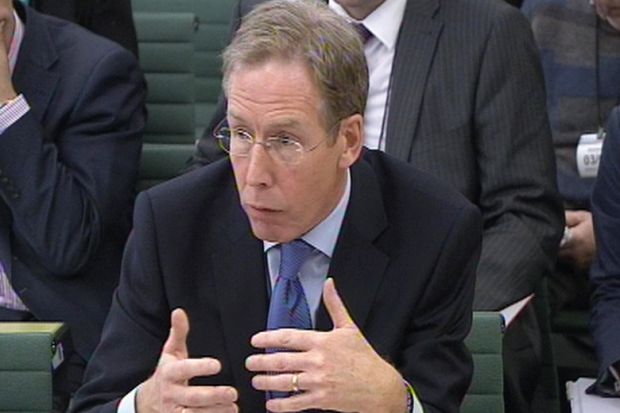The future of the higher education sector is “one of the critical social policy challenges that we face as a country”, said the man responsible for reforming the English regulator to better meet the challenges ahead.
Sir David Behan, recently appointed by the government as the interim chair of the Office for Students (OfS) following the resignation of the Conservative peer Lord Wharton of Yarm, said the watchdog had taken on too many responsibilities in recent years and should instead focus on its core priorities, including helping to maintain the sector’s financial sustainability.
Having just conducted a detailed review into the role of the organisation, Sir David said taking over as chair and seeing the recommendations implemented made it a difficult position to turn down.
“I regard myself as a public servant and I want to make a difference,” he added. “I think making a contribution to the improvement of the OfS and how they can contribute to the development of further and higher education as we go to the middle of the 21st century is a really important job to undertake.”
His review outlined the four “core priorities” he wants the regulator to focus on: monitoring financial sustainability, ensuring quality, protecting public money and regulating in the interests of students.
“I think all four of those things come together,” he said. “They're interlinked, they're interdependent, and I think that should be the priority.”
The controversial issue of free speech legislation – which the government has delayed – was one of the many “additional roles” highlighted by Sir David’s review that the OfS was given by the previous government.
“I personally think it was asked to do too much,” he said. “There was a paradox for me undertaking the review that, it was seen to be an organisation that wasn’t being as successful as it needed to be, yet it was given more responsibilities as it went through.
“I do think there was a tendency in the Department [for Education] to, arguably, use it to implement policy and I felt that deflected from its role to provide that independent assurance of the quality of education and whether higher education was acting in the interests of its students.”
Although he will occupy the position for no more than 10 months while a permanent successor is found, Sir David is hopeful the OfS can make “real progress” implementing these recommendations during that time. Some of the changes will require legislation, but others – in “tone and style” – can begin immediately.
If it wants to help universities combat the “real and significant” financial challenges, the OfS must be more “outward facing” and collaborative with both the Department for Education (DfE) and sector itself, Sir David said.
“The OfS as a regulator does not have its hands on all the levers that are going to be required to secure financial sustainability.”
He also wants to see the sector collaborate better as well – whether that is in back-office functions, or with further education – and be innovative to secure financial sustainability.
Communication with the sector – the OfS “black hole” – was a key issue raised by his report and Sir David said universities need to be able to speak to the OfS early on if they have financial problems.
“You’re never the most popular person when you run a regulator with the sector, but I think being respected for the way that you discharge your responsibilities, engaging with the sector is absolutely key,” he said.
“And if that respect is converting to trust, then I think that’s the ideal position to be in because ultimately, I think the sector and the Office for Students want the same thing – a sustainable, high quality, effective sector acting in the interests of students.
“I think that’s our common cause, and I think by working collaboratively, you do not sacrifice your independence.”
However, he cautioned that because of the massive variation in size and shape of the sector, there was no one solution to the financial pressures being experienced by higher education – some might need to innovate, collaborate more, or even merge, he said.
The review, which was welcomed by university leaders, also found that a “perceived lack of independence of the OfS was a recurring theme” in interviews with the sector. Lord Wharton retaining the Conservative Party whip while chair of the regulator was the issue most frequently cited as evidence of a lack of independence.
Sir David said he did not think that was the most important issue, but did highlight that he wants the judgements the OfS makes to be independent of government.
“Independence is a really nuanced and subtle concept,” he added. “We need a relationship with the DfE but we need to be really clear about what our role and responsibility is, and independence in our judgements is a key factor.”
后记
Print headline: Time to streamline, says new OfS chief

